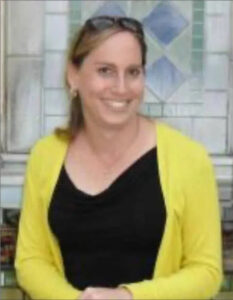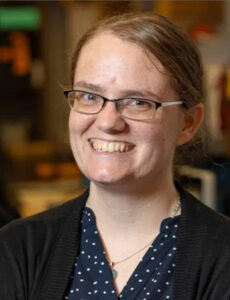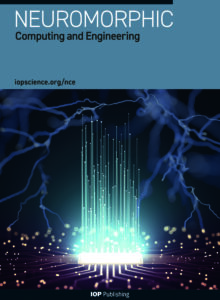直播预告|NCE期刊在线研讨会:What is meant by neuromorphic computing

IOP出版社旗下Neuromorphic Computing and Engineering (NCE)期刊主办的在线研讨会将聚焦神经形态计算,定于北京时间2025年6月18日周三21:00线上召开。
研讨会详情
参会方式
研讨会主席

Giulia D’Angelo
- Giulia D’Angelo is currently a Marie Skłodowska-Curie postdoctoral fellow at the Czech Technical University in Prague, where she focuses on neuromorphic algorithms for active vision. She obtained a bachelor’s degree in biomedical engineering from the University of Genoa and a master’s degree in neuroengineering with honours. During her master’s, she developed a neuromorphic system for the egocentric representation of peripersonal visual space at King’s College London. She earned her PhD in neuromorphic algorithms at the University of Manchester, receiving the President’s Doctoral Scholar Award, in collaboration with the Event-Driven Perception for Robotics Laboratory at the Italian Institute of Technology. There, she proposed a biologically plausible model for event-driven, saliency-based visual attention. She was recently awarded the Marie Skłodowska-Curie Fellowship to explore sensorimotor contingency theories in the context of neuromorphic active vision algorithms.
研讨会嘉宾
Team Emulation

Elisa Donati
- Elisa’s research interests aim at designing neuromorphic circuits that are ideally suited for interfacing with the nervous system and show how they can be used to build closed-loop hybrid artificial and biological neural processing systems. She is also involved in the development of neuromorphic hardware and software systems able to mimic the functions of biological brains to apply for medical and robotics applications.

Jennifer Hasler
- Jennifer Hasler received her BSE and MS degrees in electrical engineering from Arizona State University in August 1991. She received her PhD in computation and neural systems from California Institute of Technology in February 1997. Jennifer is a professor at the Georgia Institute of Technology in the School of Electrical and Computer Engineering; Atlanta is the coldest climate in which she has lived. Jennifer founded the Integrated Computational Electronics (ICE) laboratory at Georgia Tech, a laboratory affiliated with the Laboratories for Neural Engineering. She is a member of Tau Beta P, Eta Kappa Nu, and the IEEE.
Team Simulation

Catherine (Katie) Schuman
- Catherine (Katie) Schuman is an assistant professor in the Department of Electrical Engineering and Computer Science at the University of Tennessee (UT). She received her PhD in computer science from UT in 2015, where she completed her dissertation on the use of evolutionary algorithms to train spiking neural networks for neuromorphic systems. Katie previously served as a research scientist at Oak Ridge National Laboratory, where her research focused on algorithms and applications of neuromorphic systems. Katie co-leads the TENNLab Neuromorphic Computing Research Group at UT. She has written for more than 70 publications as well as seven patents in the field of neuromorphic computing. She received the Department of Energy Early Career Award in 2019. Katie is a senior member of the Association of Computing Machinery and the IEEE.

Emre Neftci
- Emre Neftci received his MSc degree in physics from EPFL in Switzerland, and his PhD in 2010 at the Institute of Neuroinformatics at the University of Zurich and ETH Zurich. He is currently an institute director at the Jülich Research Centre and professor at RWTH Aachen. His current research explores the bridges between neuroscience and machine learning, with a focus on the theoretical and computational modelling of learning algorithms that are best suited to neuromorphic hardware and non-von Neumann computing architectures.
期刊介绍

Neuromorphic Computing and Engineering
- 2023年影响因子:5.8 Citescore: 5.9
- Neuromorphic Computing and Engineering(NCE)是一本涵盖多个学科领域、采用开放获取(OA)形式出版的期刊。NCE期刊将神经形态系统的硬件和计算方面结合在一起,读者群覆盖工程、材料科学、物理、化学、生物学、神经科学和计算机科学等领域,跨越学术界和产业界的各个群体。在NCE期刊上发表的研究需针对神经形态系统和人工神经网络领域做出及时而重要的贡献。
